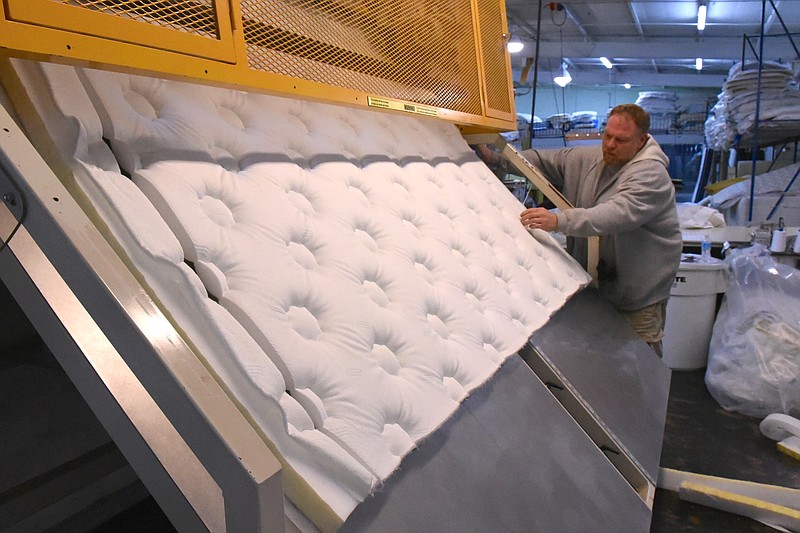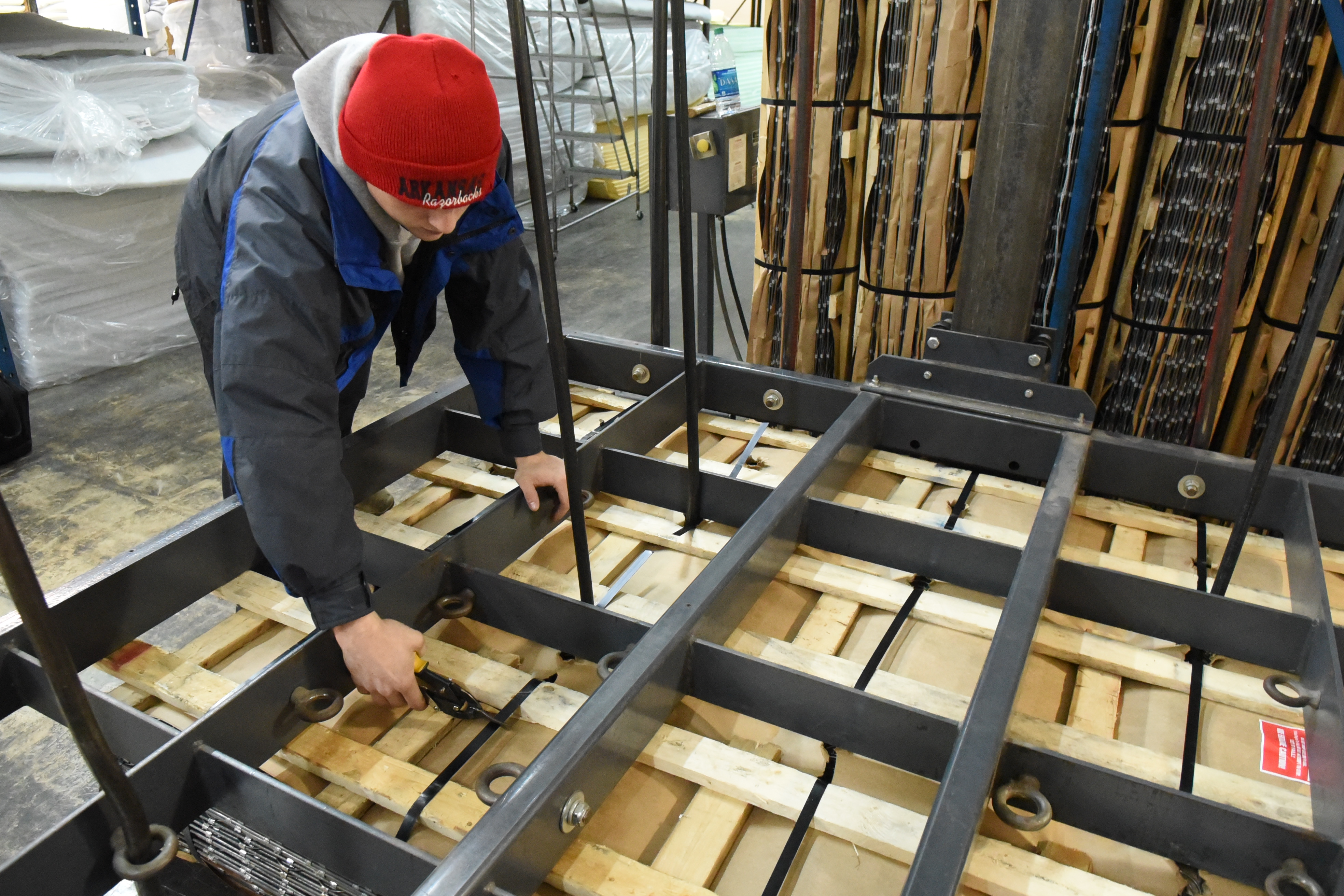Cleveland's MurMaid Mattress lost the mermaid logo because, unbeknownst to the company's owners, it led many consumers to believe that MurMaid made exclusively waterbeds.
In reality, nobody really makes waterbeds these days. MurMaid never made them.
But MurMaid did just celebrate its 35th birthday, marking the better part of 50 years in the mattress making business, from its home base in Cleveland.
When MurMaid started, the company was doing about $300,000 in sales annually.
Now, it does more like $7 million.
While MurMaid makes mattresses, it also has a line of retail shops which carry the major mattress brands, like Tempur-Pedic and Serta.
Most of MurMaid's mattresses go to retail at Murmaid stores in the greater-Chattanooga area, but MurMaid also maintains small contracts for mattresses in the area.
Some are sent to a school for dorm rooms, and some MurMaid mattresses wind up in a non-affiliated showroom in Sevierville.
From its roughly 15,000-square-foot factory off Georgetown Road in Cleveland, MurMaid employs between eight and 15 people and produces, on average, 60 mattresses a day.
This story originally appeared in the February edition of Edge magazine.

